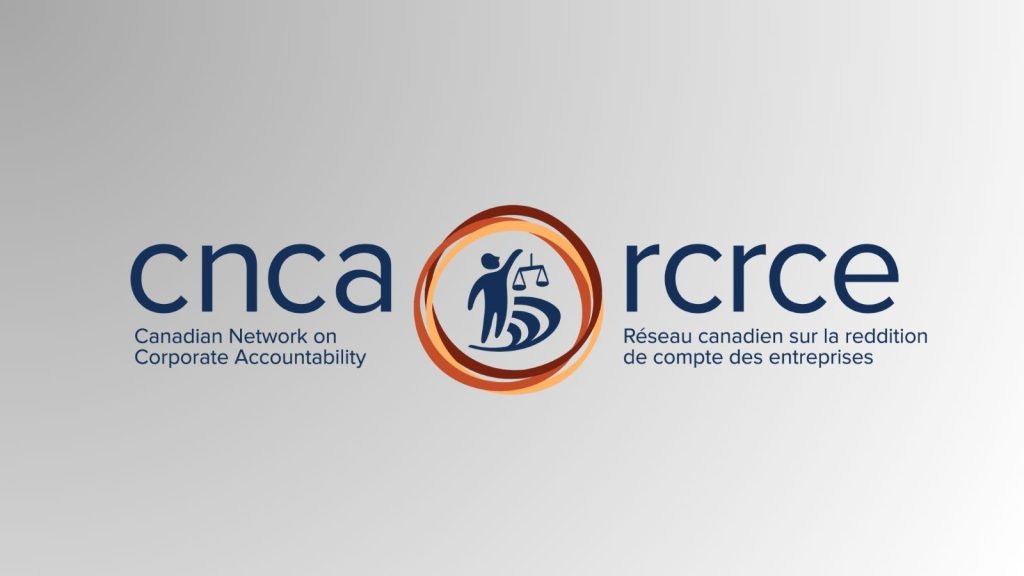On 13 February 2020, the CNCA wrote to the CORE, after the CORE solicited the CNCA’s initial feedback for draft operating procedures. Here is the beginning of what that letter says:
===
RE: Civil society confidence in the CORE, undermined by absence of powers
Dear Ms. Meyerhoffer,
Thank you for reaching out to us to solicit our initial feedback on the draft standard operating procedures (SOPs) for the Canadian Ombudsperson for Responsible Enterprise (CORE). In our view, from a human rights perspective, there are substantial shortcomings in the draft SOPs. Among our most significant concerns are:
The SOPs should be framed around CORE’s ultimate goal: advancing fulfilment of Canada’s international human rights obligations. However, the draft SOPs articulate that the “central values and principles that inform the CORE’s work” include that “human rights disputes are best addressed through collaborative approaches such as mediation and joint fact-finding.” This is not a recognized international human rights approach. Notably this focus on joint fact-finding has been repeatedly advanced by industry, in particular the Mining Association of Canada. Civil society and labour groups, along with important contributions from frontline communities, have repeatedly highlighted the serious limitations and problems with this approach.
While there may be some circumstances in which mediation and joint-fact-finding do indeed offer a resolution that meets international human rights requirements (and thus we are certainly not suggesting it would never be appropriate), there are many other instances in which it is counter-productive, fear-inducing or leads to incomplete and even inaccurate outcomes. It is deeply problematic to see this privileged as the “best” option in a process that is, after all, about examining complaints of human rights abuse. These SOPs are not dealing with such functions as human rights capacity building or human rights awareness programming, which may well benefit from collaborative and joint approaches. You are dealing with sensitive situations, often involving grave human rights abuses, in a context of dramatic power imbalances. Mediation and joint fact-finding should not be considered to be the natural starting point in your reviews.
The draft SOPs are significantly incomplete in their enumeration of illustrative “international human rights” instruments. While the UN Declaration, ICCPR and ICESCR are of course pivotal sources, the CORE’s Order in Council mandate (2019-09-06) defines human rights abuse as “an adverse impact on an internationally recognized
human right.” There are a number of crucial documents relevant to business and human rights that are not mentioned. We would highlight in particular the absence of reference to the UN Declaration on the Rights of Indigenous Peoples, the Conventions on the Elimination of all forms of Discrimination against Women (CEDAW) and All Forms of Racial Discrimination (CERD) as well as the 8 core ILO labour conventions. A more comprehensive list is included in the CNCA’s model Ombudsperson legislation that has been shared with you previously and is available at: http://cnca-rcrce.ca/wpcontent/uploads/2019/04/The-Global-Leadership-in-Business-and-Human-RightsAct.pdf .
There is literature relating to Canadian human rights commissions that urge caution relating to the use of mediation to address human rights violations. These considerations include the need to recognize the broader public policy dimension inherent in any human rights case (that may go beyond what could be agreed to in a private agreement) and the need to take into account the potential existence of significant power imbalances between the parties. There is no evidence that this caution has been taken into account in drafting these SOPs. In the same vein, it would be important to clarify that, as joint fact-finding is itself a form of mediation [1], at minimum the informed consent and agreement of both parties is required before joint fact-finding can occur.
It is troubling that the SOPs explicitly lay out that the CORE may make a finding that a human rights violation has not occurred, but do not similarly indicate that the CORE can make a finding that a human rights violation has occurred.
The above does not pretend to be an exhaustive commentary on the draft Standard Operating Procedures. [2] We would have other significant feedback to offer. However, given the continued lack of clarity relating to whether and when the CORE will be given the basic minimum powers it needs to be able to fulfill its core investigatory mandate, we are not prepared to engage more fully with this consultation. There are now numerous examples of cases in which the harm
endured by complainants has been deepened through their participation in non-judicial mechanisms that did not have the necessary powers. [3] Because of those deeply problematic limitations in your mandate at this time, we are left without confidence that the CORE can be effective in serving the needs of impacted communities who have been waiting far too long for an effective avenue for remedy in Canada.
We wish to highlight that once there is clarity that your office will be granted these basic, minimum, essential powers, we would enthusiastically engage with you to finalize the draft SOPs so they are meaningful to the communities they are intended to serve.
… [full letter below as PDF] …
===
Letter and response RE CORE’s visit to South America
Th CNCA also wrote a letter to the CORE regarding its visit to South America in February 2020, to which the CORE responsed. Please see: CNCA’s letter regarding the CORE visit to South America (PDF) ; as well as the CORE’s letter to CNCA RE its visit to South America, 21 February 2020 (PDF).




